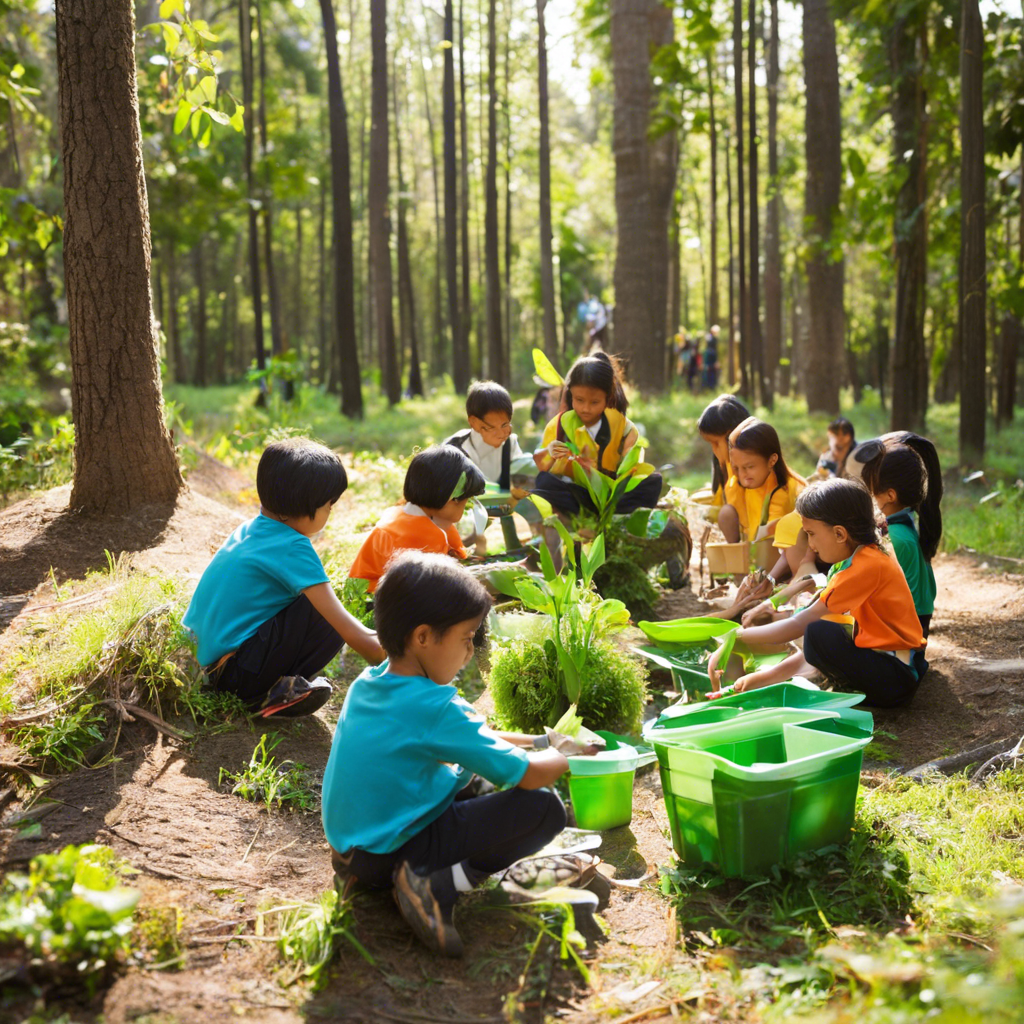Exploring nature’s classroom: The transformative impact of outdoor education on environmental consciousness.
In an era of increasing environmental challenges, fostering a deep connection with nature has become more crucial than ever. Outdoor education emerges as a powerful tool to cultivate environmental awareness, offering a unique and immersive learning experience. This article delves into the multifaceted role of outdoor education, highlighting its ability to shape environmentally conscious individuals and communities. By stepping beyond the confines of traditional classrooms, educators can inspire a sense of stewardship and a deeper understanding of the natural world.
The Benefits of Outdoor Learning
Outdoor education provides a wealth of benefits that extend far beyond the confines of a traditional classroom.
Engaging with the Natural Environment
Students are immersed in the natural world, fostering a deep sense of connection and appreciation. Through hands-on experiences, they learn about ecosystems, biodiversity, and the intricate web of life. This direct engagement inspires curiosity, sparks creativity, and nurtures a lifelong love for nature. To learn more about the positive impact of nature on mental health and well-being, visit Nature’s Impact on Well-Being.
Practical Skills Development
The outdoors becomes a dynamic classroom where students acquire a range of practical skills. They learn to identify plants and animals, navigate using maps and compasses, and develop survival skills. These skills not only enhance their understanding of ecology but also empower them to become more self-reliant and adaptable. For an in-depth guide on outdoor survival skills, explore Outdoor Survival 101.
Inspiring Environmental Stewardship
Nurturing a Sense of Responsibility
Through outdoor education, students are given the opportunity to witness firsthand the beauty and fragility of the natural world. This intimate connection cultivates a sense of responsibility and stewardship, encouraging them to protect and preserve their surroundings. They become advocates for sustainable practices and active participants in environmental initiatives.
Environmental Education Programs
Environmental education programs are instrumental in fostering environmental awareness and action. These programs often include activities such as:
- Community clean-up drives
- Conservation projects
- Interactive workshops
These initiatives engage students in meaningful ways, allowing them to contribute to their communities and make a tangible difference. To explore a wide range of environmental education resources and programs, visit Environmental Education Programs.
Addressing Real-World Environmental Issues
Connecting Theory to Practice
Outdoor education bridges the gap between academic knowledge and real-world applications. Students can apply ecological principles to tangible environmental challenges, such as climate change, habitat loss, and pollution. By connecting theory to practice, they develop a deeper understanding of the complexities and interconnectedness of environmental issues.
Hands-on Problem-Solving
Outdoor settings provide the perfect backdrop for students to engage in hands-on problem-solving. Whether it’s designing sustainable solutions for local ecosystems or devising strategies to mitigate environmental impacts, students learn to think critically and innovatively. This practical approach equips them with the skills to tackle environmental challenges in their communities and beyond.
Questions and Answers
How does outdoor education impact students’ academic performance?
Outdoor education has been shown to enhance academic performance across various subjects. The hands-on nature of outdoor learning improves student engagement, critical thinking, and problem-solving skills. Environmental education also provides real-world context for scientific concepts, making learning more meaningful and applicable.
What are some challenges educators might face when implementing outdoor education programs?
Implementing outdoor education programs may present logistical challenges, such as transportation, equipment, and safety considerations. Educators also need to ensure a strong curriculum alignment with outdoor activities to maintain academic rigor. However, with proper planning and support, these challenges can be overcome, leading to a rich and rewarding learning experience.
Can outdoor education foster a sense of community and collaboration?
Absolutely! Outdoor education encourages collaboration and teamwork, as students often work together to solve problems and complete tasks. The shared experience of exploring and learning in nature can foster a strong sense of community, promoting cooperation and mutual respect.
Conclusion
Outdoor education is a powerful catalyst for promoting environmental awareness and action. By engaging students in hands-on learning experiences, it inspires a deeper connection with nature, nurtures environmental stewardship, and equips individuals with the skills to address real-world challenges. As we navigate an increasingly complex and fragile environment, outdoor education becomes an essential tool in empowering the next generation of environmental leaders and advocates.
**Recommended External Links:**
1. Nature’s Impact on Well-Being
2. Outdoor Survival 101
3. Environmental Education Programs
